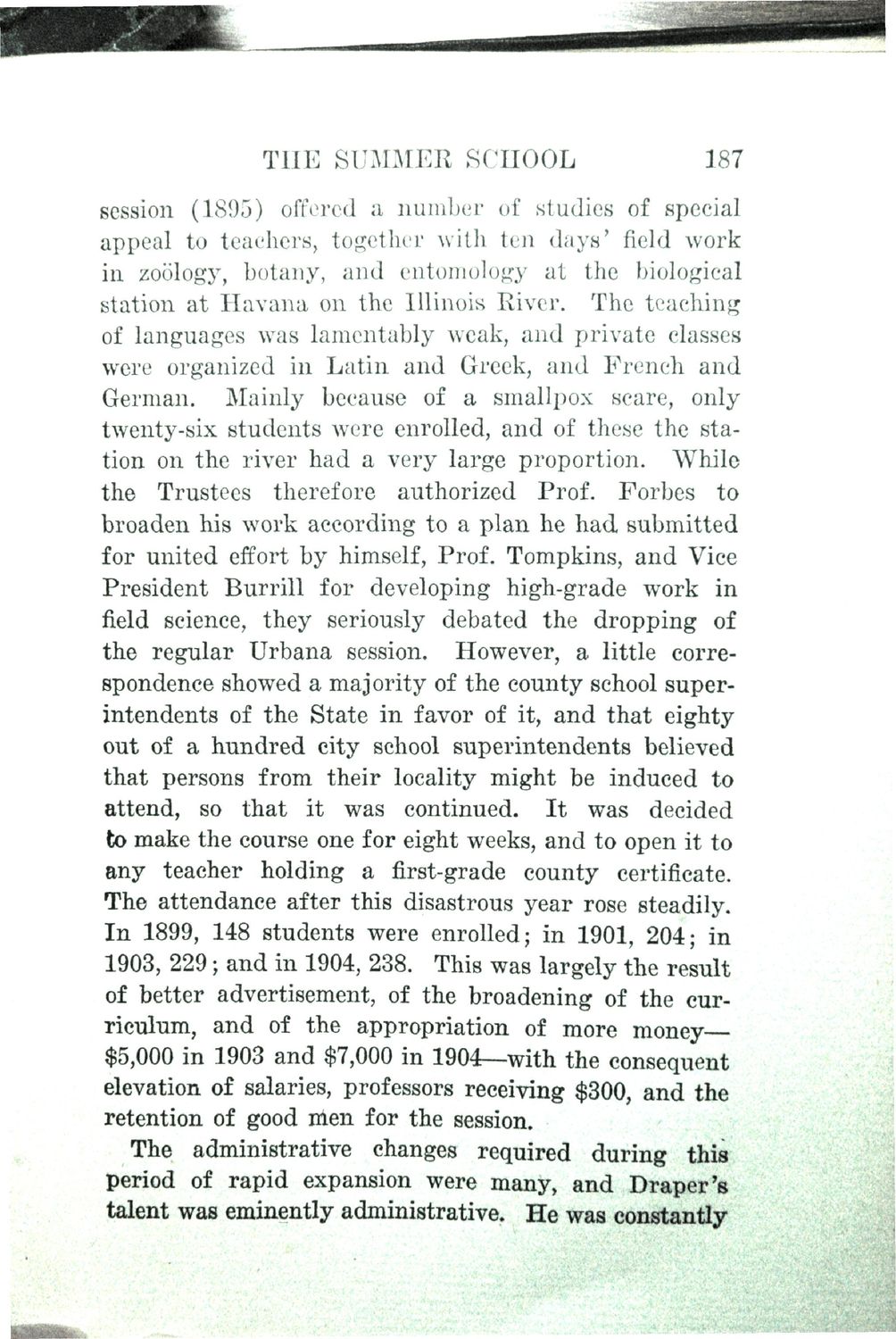| |
| |
Caption: Book - History of the University (Nevins)
This is a reduced-resolution page image for fast online browsing.

EXTRACTED TEXT FROM PAGE:
THE SUMMER SCHOOL 187 session (1895) offered a number of studies of special appeal to teachers, together with ten days' field work in zoology, botany, and entomology at the biological station at Havana on the Illinois River. The teaching of languages was lamentably weak, and private classes were organized in Latin and Greek, and French and German. Mainly because of a smallpox scare, only twenty-six students were enrolled, and of these the station on the river had a very large proportion. giWhile the Trustees therefore authorized Prof. Forbes to broaden his work according to a plan he had submitted for united effort by himself, Prof. Tompkins, and Vice President Burrill for developing high-grade work in field science, they seriously debated the dropping of the regular Urbana session. However, a little correspondence showed a majority of the county school superintendents of the State in favor of it, and that eighty out of a hundred city school superintendents believed that persons from their locality might be induced to attend, so that it was continued, ffI t was decided to make the course one for eight weeks, and to open it to any teacher holding a first-grade county certificate. The attendance after this disastrous year rose steadily. In 1899, 148 students were enrolled; in 1901, 204; in 1903, 229; and in 1904, 238. This was largely the result of better advertisement, of the broadening of the curriculum, and of the appropriation of more money $5,000 in 1903 and $7,000 in 1904—with the consequent elevation of salaries, professors receiving $300, and the retention of good men for the session. The administrative changes required during this period of rapid expansion were many, and Draper's talent was eminently administrative. He was constantly
| |